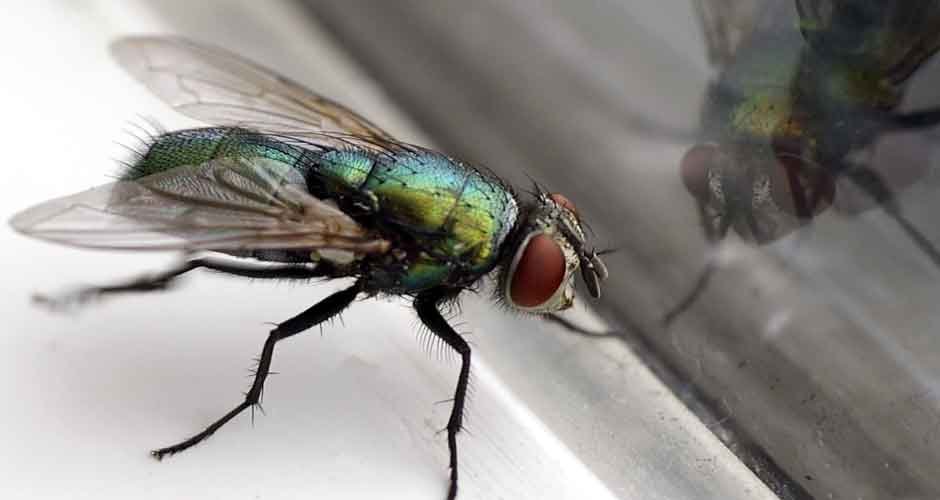Flies buzzing around the home can be a significant nuisance, particularly during warmer months. Not only are they bothersome, but they can also pose health risks by spreading bacteria.
This article explores effective strategies to prevent flies from entering indoor spaces, focusing on UK households.
Understanding Fly Attraction
To effectively combat the invasion of flies, it’s crucial to understand what attracts them indoors. Common attractants include food remnants, pet waste, and overripe fruits.
Flies are particularly drawn to strong odours and potential breeding sites, such as garbage bins and compost heaps.
Regular Cleaning Regimen
The first line of defence against flies is maintaining a clean home environment. Regularly emptying bins, cleaning food spills immediately, and storing food in sealed containers can significantly reduce the likelihood of attracting flies.
Additionally, ensuring that compost bins are well-managed and positioned away from doors and windows is essential.
Outdoor Maintenance
Keeping your outdoor area tidy is equally important. Regularly removing pet waste, covering compost bins, and ensuring that garden waste is properly disposed of can deter flies.
Overgrown vegetation near the house can provide breeding grounds for flies, so keeping your garden neat is advisable.
Mechanical Barriers
One effective way to prevent flies from entering your home is by installing barriers. The installation of fly screen doors allows fresh air to circulate while keeping flies out. These screens are particularly effective in summer when doors and windows are left open more frequently.
Window Screens and Fly Curtains
In addition to fly screen doors, consider installing mesh screens on windows. These screens are available in various materials and can be fitted to most window types.
Fly curtains, often made of plastic strips or beads, can also be an effective deterrent when placed at external doors.
Chemical and Natural Repellents
Commercial Fly Repellents
There are numerous commercial fly repellents available, ranging from sprays to electric fly killers. When using chemical repellents, it’s important to follow the manufacturer’s instructions, particularly in homes with children and pets.
Natural Methods
For those who prefer a more natural approach, several options exist. Citronella, lavender, and eucalyptus are known to repel flies and can be used in oil diffusers or as pot plants. Homemade traps, such as bowls of vinegar covered with plastic wrap and pierced with small holes, can also be effective.
Preventive Strategies
Sealing Entry Points
Inspect your home for any cracks or gaps where flies might enter. Sealing these with caulk or weather stripping can be an effective way to keep flies out. Pay special attention to areas around windows and doors.
Proper Waste Management
Ensure that your garbage bins are tightly sealed and emptied regularly. Compost should be well maintained, and any food waste should be covered or buried deep within the compost pile.
Encouraging Natural Predators
Attracting natural predators of flies, such as birds and bats, can be an eco-friendly way to control the fly population. Bird feeders and bat boxes in your garden can encourage these natural allies to visit and help control the fly population.
Final Thoughts: A Breath of Fresh Air
Tackling the issue of flies entering your home requires a multi-faceted approach. From maintaining cleanliness and sealing entry points to employing mechanical barriers and natural repellents, there are numerous strategies to consider.
By implementing these measures, you can enjoy a fly-free home, ensuring a healthier and more comfortable living environment. Remember, a little effort goes a long way in keeping your indoor spaces a breath of fresh air, free from the nuisance of flies.


